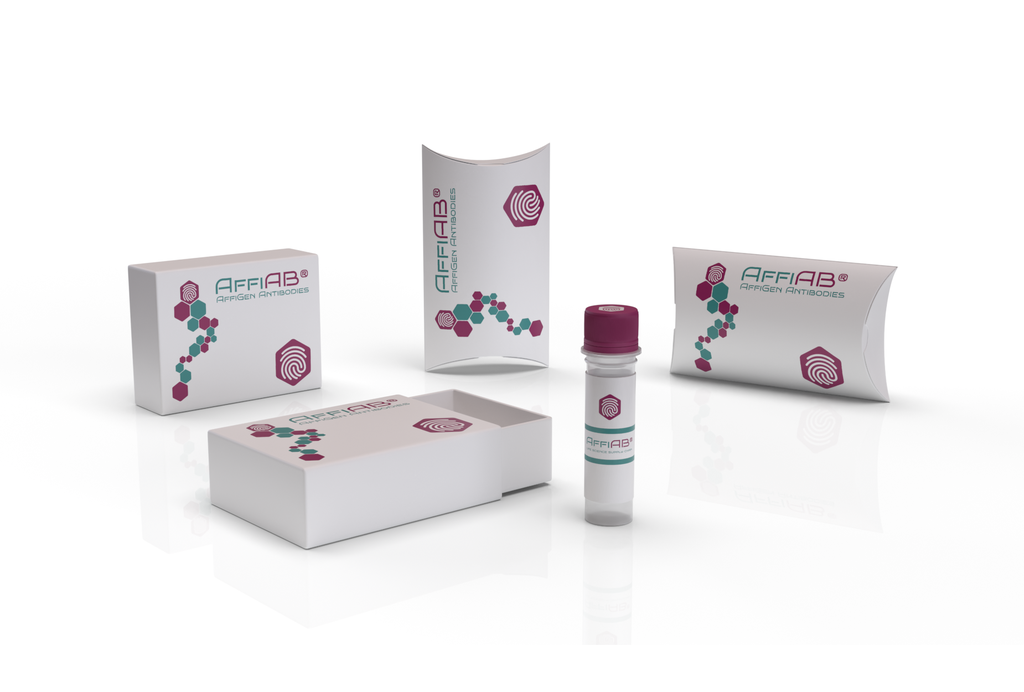AffiAB® Anti-Vitamin D3 Receptor Antibody
The active metabolite of vitamin D modulates the expression of a wide variety of genes in a developmentally specific manner. This secosteroid hormone can up- or downregulate the expression of genes involved in a diverse array of responses such as proliferation, differentiation and calcium homeostasis. 1, 25- (OH) 2-vitamin D3 exerts its effects through interaction with the vitamin D receptor (VDR) , a member of the superfamily of hormone-activated nuclear receptors. In its ligand-bound state, the VDR forms heterodimers with the 9-cis retinoic acid receptor, RXR, and affects gene expression by binding specific DNA sequences known as hormone response elements, or HREs. In addition to regulating the above-mentioned cellular responses, 1, 25- (OH) 2-vitamin D3 exhibits antiproliferative properties in osteosarcoma, melanoma, colon carcinoma and breast carcinoma cells.
Antibody type
Rabbit polyclonal Antibody
Uniprot ID
SwissProt: P11473 Human; SwissProt: P13053 Rat
Recombinant
NO
Conjugation
Non-conjugated
Host
Rabbit
Isotype
IgG
Clone
N/A
KO/KD
N/A
Species reactivity
Human, Rat
Tested applications
WB, IF-Cell, FC
Predicted species reactivity
N/A
Immunogen
Recombinant protein within Human Vitamin D Receptor aa 117-297 / 427.
Storage
Store at +4°C after thawing. Aliquot store at -20°C. Avoid repeated freeze / thaw cycles.
Form
Liquid
Storage buffer
1*PBS (pH7.4) , 0.2% BSA, 50% Glycerol. Preservative: 0.05% Sodium Azide.
Concentration
1 mg/mL.
Purity
Immunogen affinity purified.
Signal pathway
N/A
Recommended dilutions
WB: 1:1, 000-1:2, 000; IF-Cell: 1:50-1:200; FC: 1:50-1:100
Molecular Weight
Predicted band size: 48 kDa
Subcellular location
Nucleus, Cytoplasm.
Positive control
U937, SK-Br-3, LOVO, MCF-7, PC-3M, rat skin tissue.
